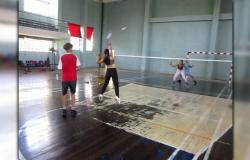Moscow is not only at war in Ukraine. The fight for hegemony of the Kremlin is also deployed in the media, the intellectual environment and, to a large extent, in the academywith emphasis on universities.
As part of the political initiatives of Putin’s Russia, the authorities are seeking to attract increasing numbers of foreign students to their universities. Until 2022 there were 356,000 of these students in higher education centers in the Eurasian nation, and the authorities’ intention is to increase the number.
The Russian media Vedemosti indicated that, according to the Kremlin’s plans, In 2030 the total number of international students should grow to reach 500,000, tens of thousands of them with scholarships paid for by Moscow. Vladimir Putin signed the decree “On the National Development Goals of the Russian Federation”, in which he states that the number of foreign students in Russia should grow to half a million in the next six years.
Kremlin officials do not hide the real purpose behind that plan: “An increase in the number of foreign students is important for both the State and universities”said Daria Milyaeva, head of the Department of International Cooperation at the Moscow City Pedagogical University, quoted by Vedemosti.
According to the official, For the Russian State, foreign students are agents of influence abroad. “Very often in our professional activities we meet graduates of Russian universities who have a warm attitude towards Russia and are ready to help establish cooperation with the country they represent,” Milyeava stressed.
And although there are a majority of candidates from neighboring and allied countries, such as Belarus (7%), Tajikistan (6.6%) and China (6.2%), there are students from 161 countries in Russian universities, according to the National Report on the Application of State Policy in the Field of Education. Among them, the number of students from Cuba is increasing.
Moscow already announced the opening this year of a branch in Cuba of the Federal University of the South (UFS)an unprecedented action, which is complemented by constant exchanges and trips of officials from the official education system from the Island to Russia, and vice versa.
That decision was described by the Observatory of Academic Freedom (OLA) as “a disastrous precedent” that would allow the Kremlin, engaged in a project to rewrite history in its favor, to indoctrinate Cuban students of higher education without supervision.
“The offer of free places to students from related countries to enter Russian universities is part of a geopolitical strategy, whose antecedents date back to the experience with students from various parts of the world – especially from the socialist countries of Eastern Europe, Africans, the Middle East, Vietnam and Cuba—during the existence of the Soviet Union,” comments political analyst Dimas Castellanos, member of the OLA and regular collaborator of our media, for DIARIO DE CUBA.
“Parallel to their specific studies, these students received training based on Marxism-Leninism and the history of the Communist Party of the Soviet Union, which led many of them, once they graduated, to occupy high responsibilities in their countries. This is a proselytizing effort based on academia and proven effective,” he points out.
The resumption of that old purpose of the USSR occurs in a different context, according to Castellanos: “The difference is that Russia was previously a world power, and today it is nothing more than a regional power, but with the presumption of becoming a power.” world”.
“The aggression against Ukraine, as happened before in Chechnya and Georgia, are steps in a more ambitious project, which threatens the entire West. However, the failure of the attempt to occupy Ukraine in a blitzkrieg exposed the non-existence of the force that Russia had until the end of the last century. This seems to indicate that the recovery of the hegemonic position requires other actions, among them, the influence that the thousands of foreign graduates in their universities can exert in the world.”
The announced opening of the UFS branch in Havana is a twist in the Russian plan: apart from bringing Cuban students to Russia, carefully chosen by the Cuban authorities, the Russian teaching model is implemented on the Island.
“It is good to remember the importance assigned by totalitarian governments to the control of education. In the Constituent Assembly of 1940, the Cuban communists presented an amendment that carried the vision that Lenin had presented in 1919 to subordinate the teaching profession to the general policy of the State,” recalls Dimas Castellanos.
“In the debate that arose in the Constituent Assembly, the liberal politician Orestes Ferrara described this amendment as a ‘totalitarian initiative’, and added: ‘This amendment indicates to me that my noble friends have believed that they have already come to power.’ In 1959, in the Universidad de Oriente, Juan Marinello, already in power, returned to the 1940 amendment. Not by chance, when the Higher Education Reform Law was enacted in 1962, with which university autonomy disappeared, Marinello was appointed rector of the University of Havana”.
“The installation of a branch of a foreign university in Cuba has no precedent. Between 1898 and 1902, during the North American occupation, to make up for the lack of teachers, more than 1,000 Cubans were sent to improve themselves at Harvard University in the United States. Several private universities were created in the Republic, but in no case was a foreign subsidiary installed on Cuban soil,” he emphasizes.
“The announcement last April that the Kremlin would open a branch of the Federal University of the South in Havana is the first branch of a foreign university on the Island. Furthermore, it means that “Before it became known that Putin would take up to half a million foreign students to its universities, Cuba was already working towards that goal.”he emphasizes.






